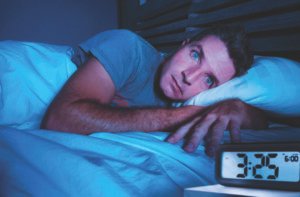Narcolepsy is a long-term brain disorder that makes it difficult for people to control their sleep-wake cycles. People with narcolepsy often feel too sleepy during the day and suddenly fall asleep and can’t stop. These conditions can make it difficult to do things like go to work or school, have relationships, or enjoy life in general. Despite this, many people are unaware of narcolepsy, and many cases go unnoticed or misdiagnosed for years.
The first step in properly treating narcolepsy is understanding its symptoms and causes. While there are no cures, there are many ways to help people live happy, healthy lives. Treating narcolepsy requires a comprehensive approach, encompassing everything from medications and lifestyle changes to coping mechanisms and support networks. This article discusses the symptoms of narcolepsy, its causes, and some helpful ways to help patients live better lives.
Understand Narcolepsy and How It Affects People:
Narcolepsy occurs when the brain loses control over when to sleep and wake up. This problem is often caused by not having enough hypocretin, a neuropeptide that keeps you awake. There are two types of narcolepsy: type 1, which includes cataplexy and type 2. Type 2 does not have cataplexy.
The effects of narcolepsy go beyond making a person sleepy. People with this disorder may have mental health issues, have difficulty concentrating, and have trouble understanding how others understand their condition. Narcolepsy can occur at any time, so it can be difficult to stick to a regular routine. This can lead to people feeling depressed and alone. In order to find a good solution to a problem, you need to understand the problem well.
How to Recognize the Signs of Narcolepsy?
Narcolepsy is characterized by excessive daytime sleepiness, which is often described as an overwhelming desire to sleep that cannot be ignored. People with this condition can fall asleep while talking, eating, or even driving, which can be dangerous. Sleep attacks can occur at any time, possibly multiple times a day.
Cataplexy is another symptom of narcolepsy type 1. Strong emotions such as laughter, anger, or surprise can trigger this sudden, short-term loss of muscle tone. The severity of cataplexy can range from mild weakness to complete physical collapse.
There are also hypnagogic hallucinations, the vivid, dreamlike experiences that occur during these changes, and sleep paralysis, the brief inability to move or speak when falling asleep or waking up. Many people with narcolepsy also have trouble falling asleep at night, waking up frequently, or having trouble staying unconscious even when they are tired during the day.
Causes and Risk Factors of Narcolepsy:
The loss of hypocretin-producing neurons in the brain is believed to cause narcolepsy. Autoimmune factors may contribute to this loss, as the body’s immune system mistakenly attacks these neurons. Genetics also play a role. Some genetic markers make people more likely to develop narcolepsy.
For people who are genetically more susceptible to narcolepsy, environmental factors such as infection, worry, or trauma may worsen the condition. But not every case has a clear cause, and scientists are still studying how genes, environment, and the autoimmune response interact.
How to Diagnose and Why Early Detection is Important?
It can be difficult to determine whether someone has narcolepsy because the symptoms can mimic other conditions, such as sleep apnea or depression. A thorough examination by a sleep specialist is essential for a proper diagnosis. A detailed medical history, a sleep diary, and certain tests, such as a polysomnogram (an overnight sleep study) and a Multiple Sleep Latency Test (MSLT) (which examines how quickly a person falls asleep and enters REM sleep), are usually part of the examination. part of the procedure.
Early detection of narcolepsy is important for proper treatment. If you do not get a diagnosis right away, it can mean that the symptoms go untreated for years, which can have a major impact on your quality of life. By making more people aware of this condition and seeking medical attention at the first signs of excessive daytime sleepiness, people can be saved from suffering for a long time.
Medical Approaches to Treating Narcolepsy:
Medication is often an important part of treating narcolepsy. People often use stimulants such as amphetamines or amphetamines to help them stay awake and avoid sleeping too much during the day. A strong sedative called sodium oxybate is used to treat cataplexy and help people sleep better at night. Antidepressants are also used to treat cataplexy, sleep paralysis, and hallucinations by stopping REM sleep.
It is important to work closely with your doctor to find the best way to treat your condition. Medication doses may need to be adjusted over time, and any side effects will need to be closely monitored.
Lifestyle Changes and Ways to Manage Stress:
Lifestyle changes are an important part of treating narcolepsy. Establishing a regular sleep routine can help control your body’s internal clock and reduce the number of interruptions to your sleep-wake cycles. Scheduling naps throughout the day can help you stay awake and focused during the day.
A healthy diet and regular exercise can help you sleep better and have more energy. Avoiding alcohol and coffee, especially a few hours before bed, can help you sleep better at night. Mindfulness meditation, yoga, and other stress-reduction techniques can also help you manage your symptoms.
Integrated Support System:
Living with narcolepsy can be lonely, but getting enough support is important for your mental health. Letting your family, friends, and coworkers know about your condition can help them get the support you need. Support groups and talking to other people with narcolepsy can give you a sense of community and help you learn to cope with the condition.
In a work or academic setting, advocating for yourself may mean asking for accommodations, such as a flexible schedule or a set nap time. By talking openly about your needs, you can create an environment that helps you succeed.
Addressing Safety Concerns Related to Narcolepsy:
People with narcolepsy are very concerned about their safety, especially when doing things like driving or operating machinery. Cataplexy and daytime sleep attacks can be very dangerous, so be careful.
The first step is to work closely with your healthcare provider to effectively manage your symptoms. You can reduce your risk by driving only when you are awake and well-rested, avoiding long or boring drives, and stopping to nap when necessary. In some cases, people may need to find alternative ways to travel to stay safe.
Conclusion:
Narcolepsy requires comprehensive treatment, including medical care, lifestyle changes, and a strong support system. Understanding the symptoms and causes of this condition can empower people to control their health and change their lives for the better, even if the condition itself is difficult. There are some helpful ways to help people with narcolepsy get back to normal, such as managing excessive daytime fatigue and easing the effects of cataplexy.
Educating more people about narcolepsy and working toward early diagnosis and successful treatment are important ways to break the stigma associated with this condition. With the right strategies and support, people with narcolepsy can live fulfilling, fulfilling lives. Managing narcolepsy isn’t just about overcoming it; it’s about regaining control and improving your quality of life.
FAQs:
1. What is the difference between narcolepsy type 1 and narcolepsy type 2?
Cataplexy is a sudden loss of muscle tone caused by sensation. Narcolepsy type 2 does not have cataplexy.
2. Is there a cure for narcolepsy?
There is currently no cure for narcolepsy, but people can manage their symptoms well with medications, lifestyle changes, and support.
3. How is narcolepsy diagnosed?
Medical history, sleep studies, and tests such as the Multiple Sleep Latency Test (MSLT) can all be used together to identify narcolepsy.
4. Will the child be sleepy?
Children can develop narcolepsy, but it is often misunderstood or simply not noticed. Early diagnosis is important for effective treatment.
5. What should I do if I think I have narcolepsy?
If you feel sleepy during the day or have other signs of narcolepsy, you should see a sleep specialist for an evaluation and diagnosis.




